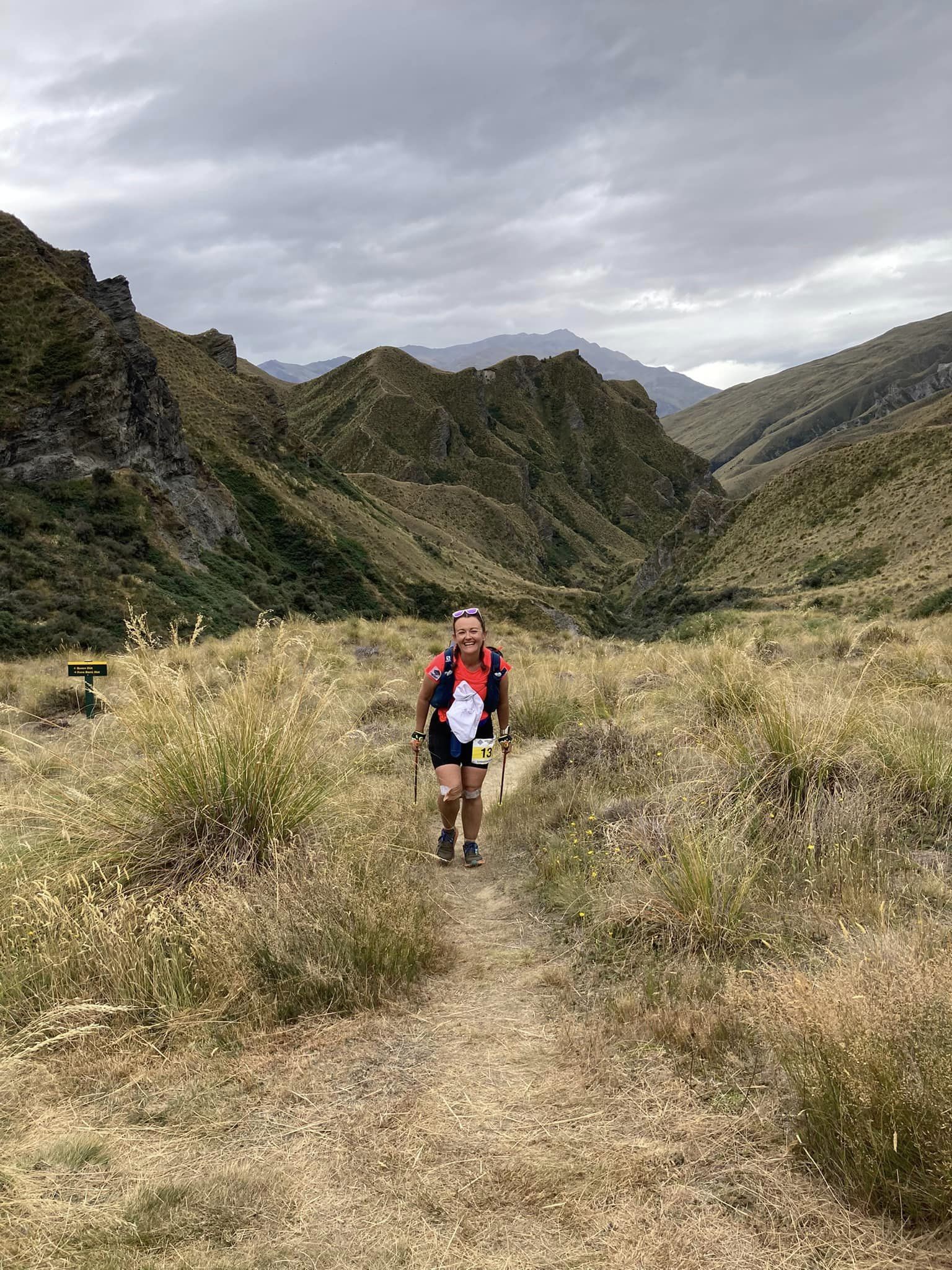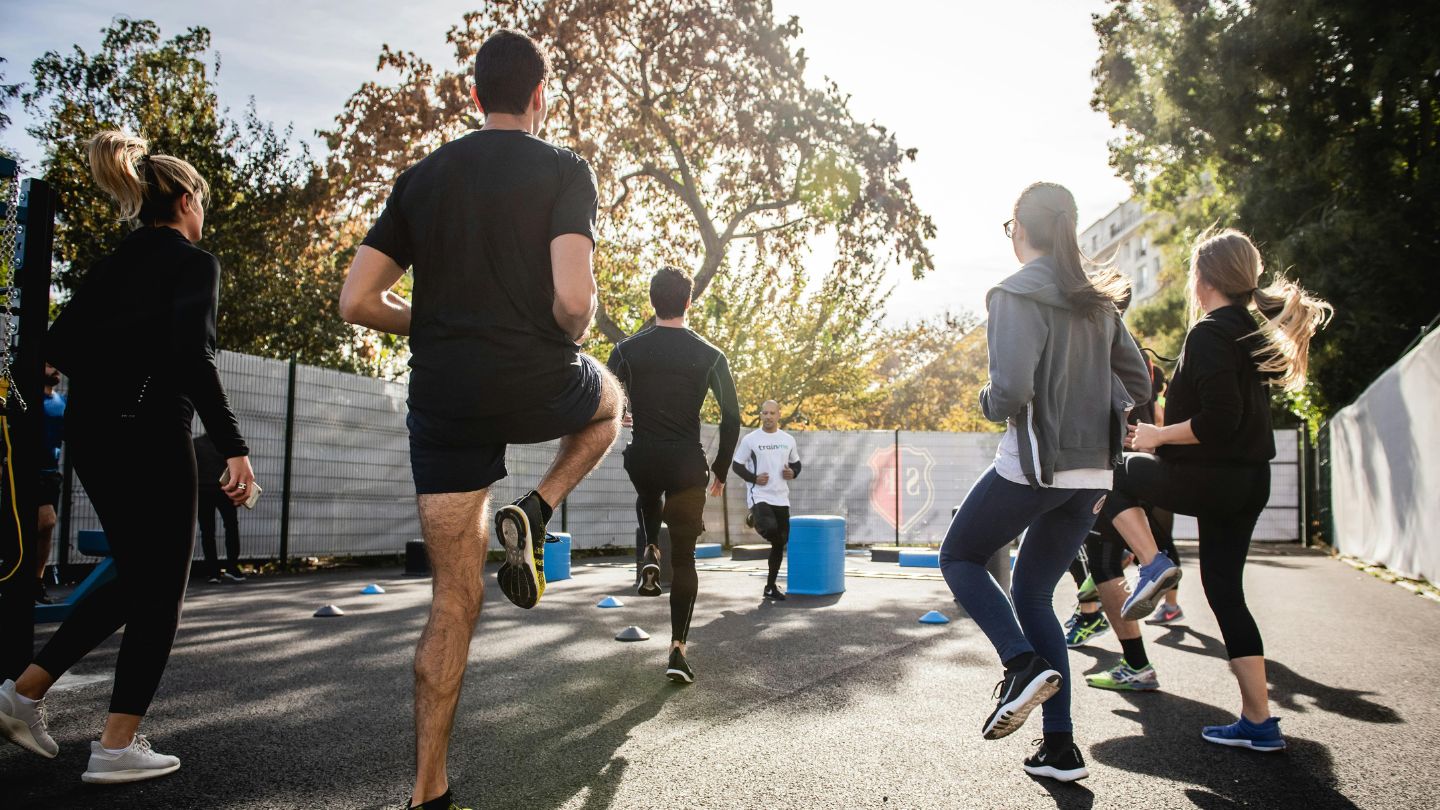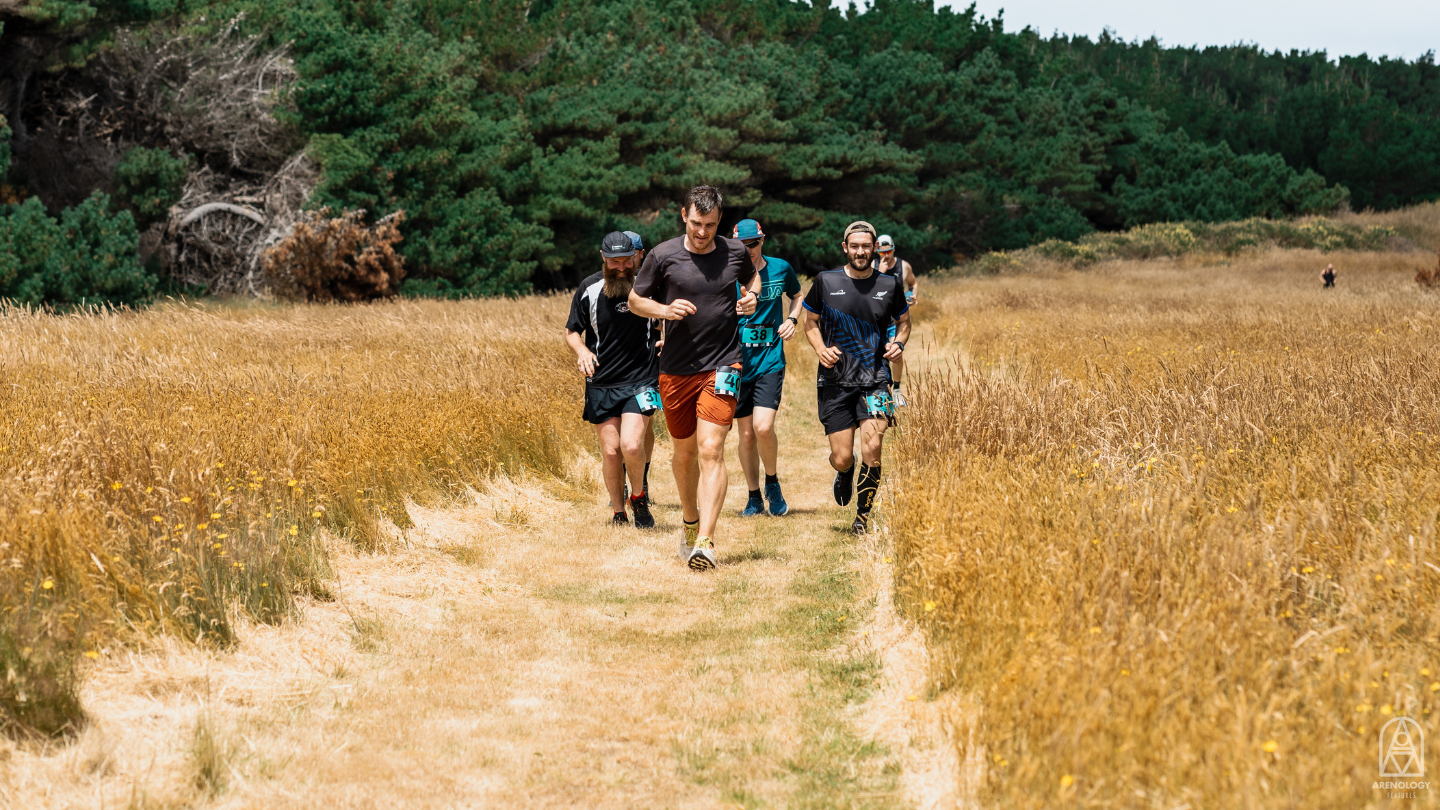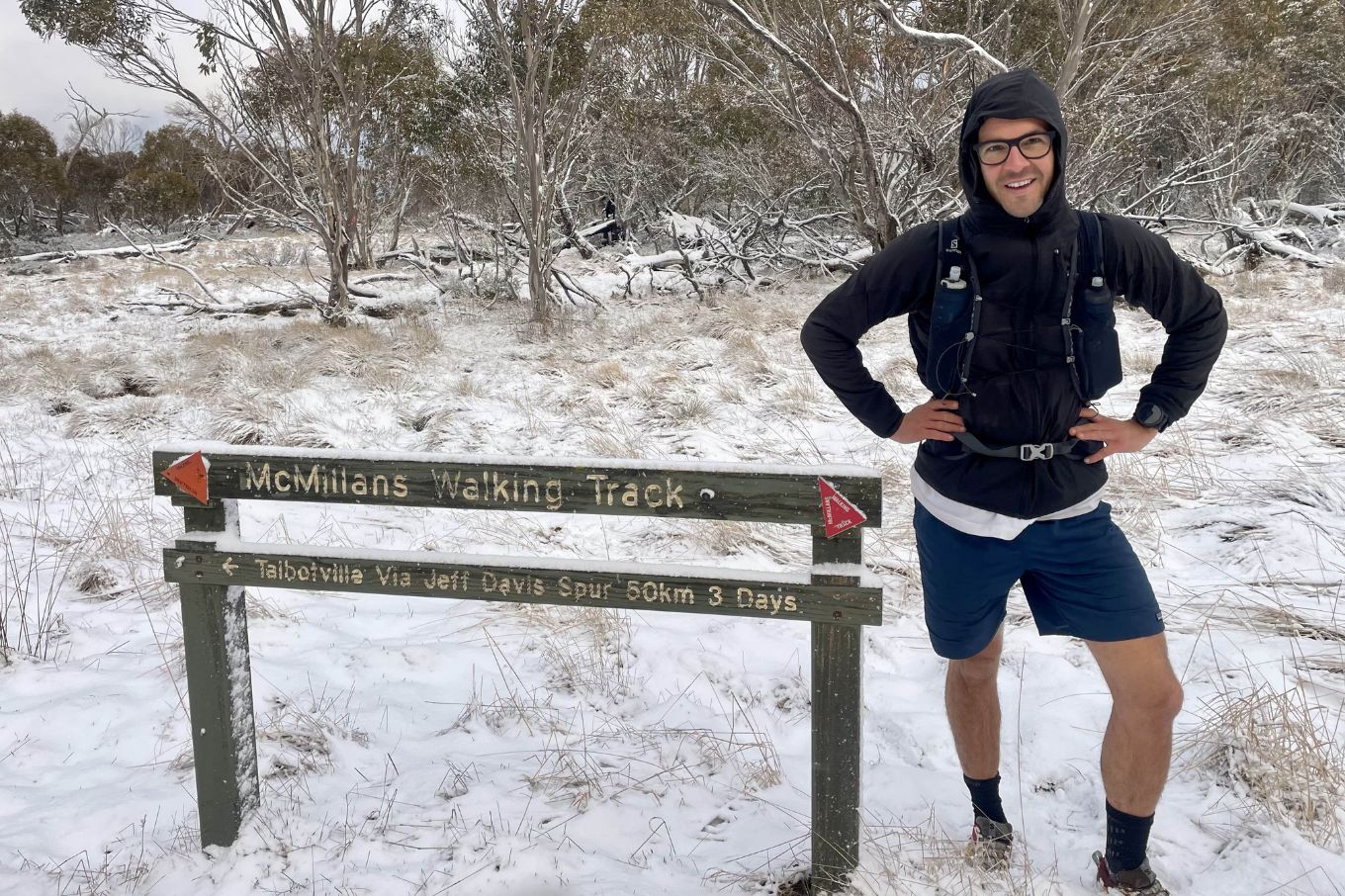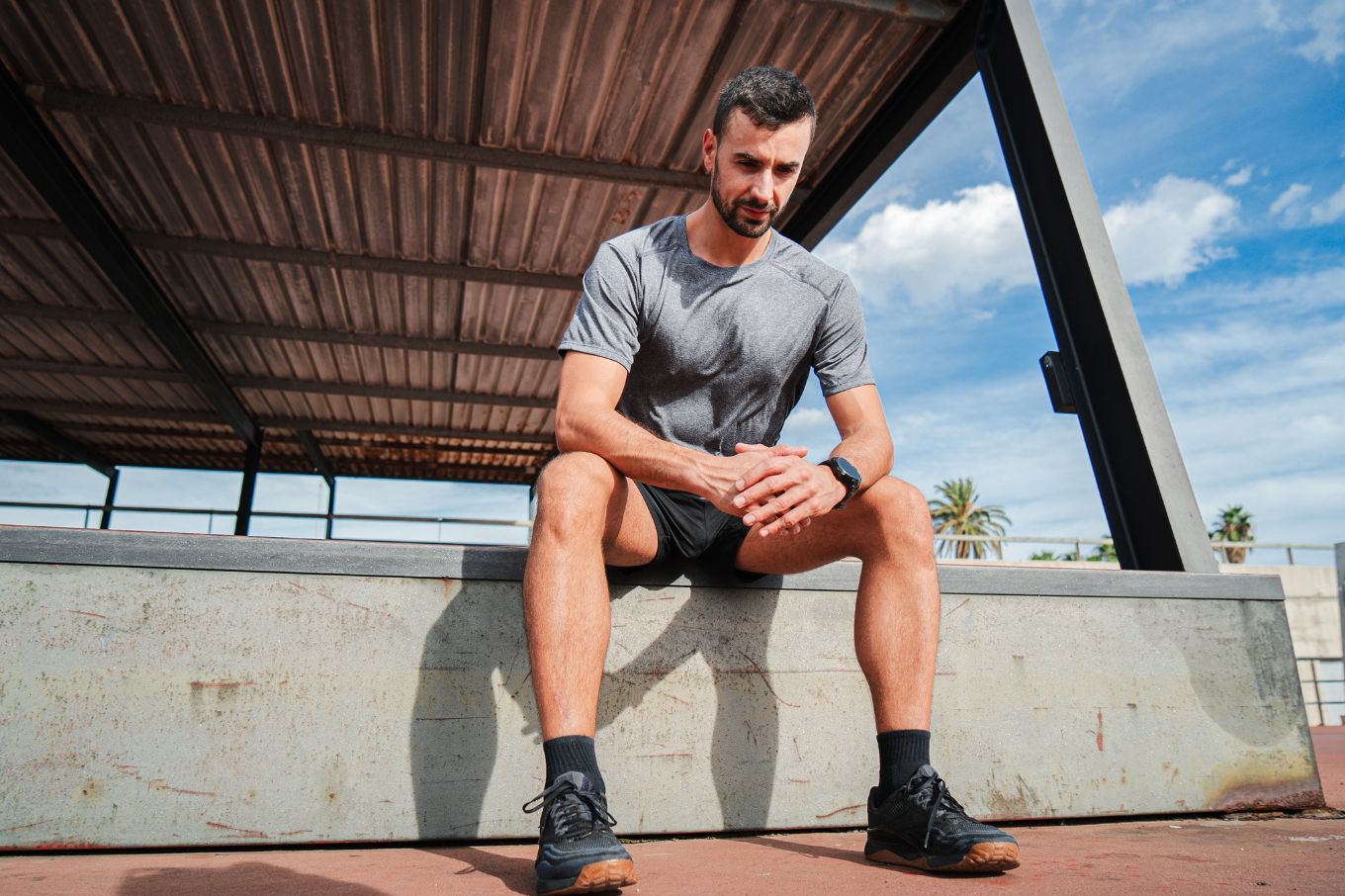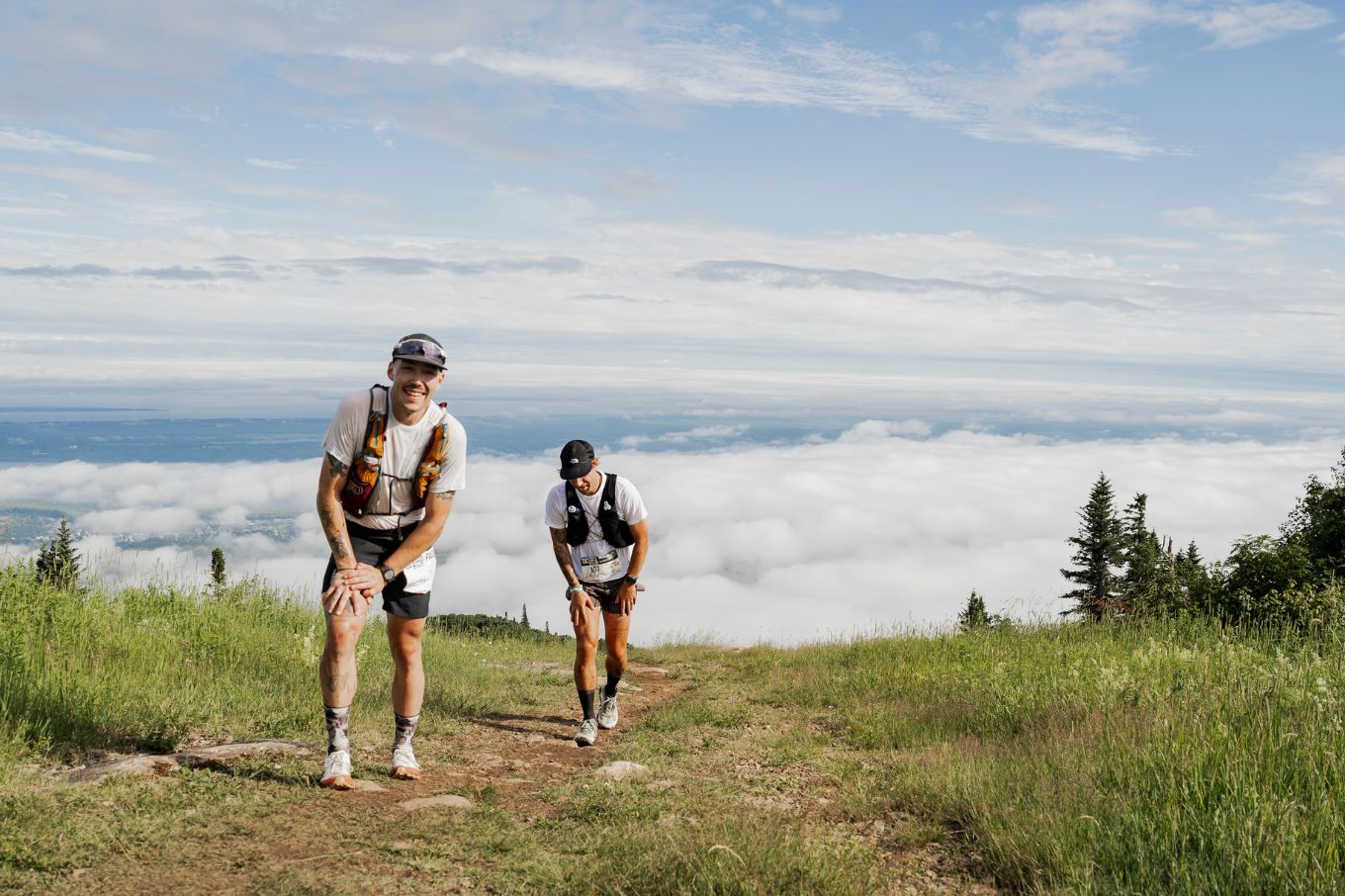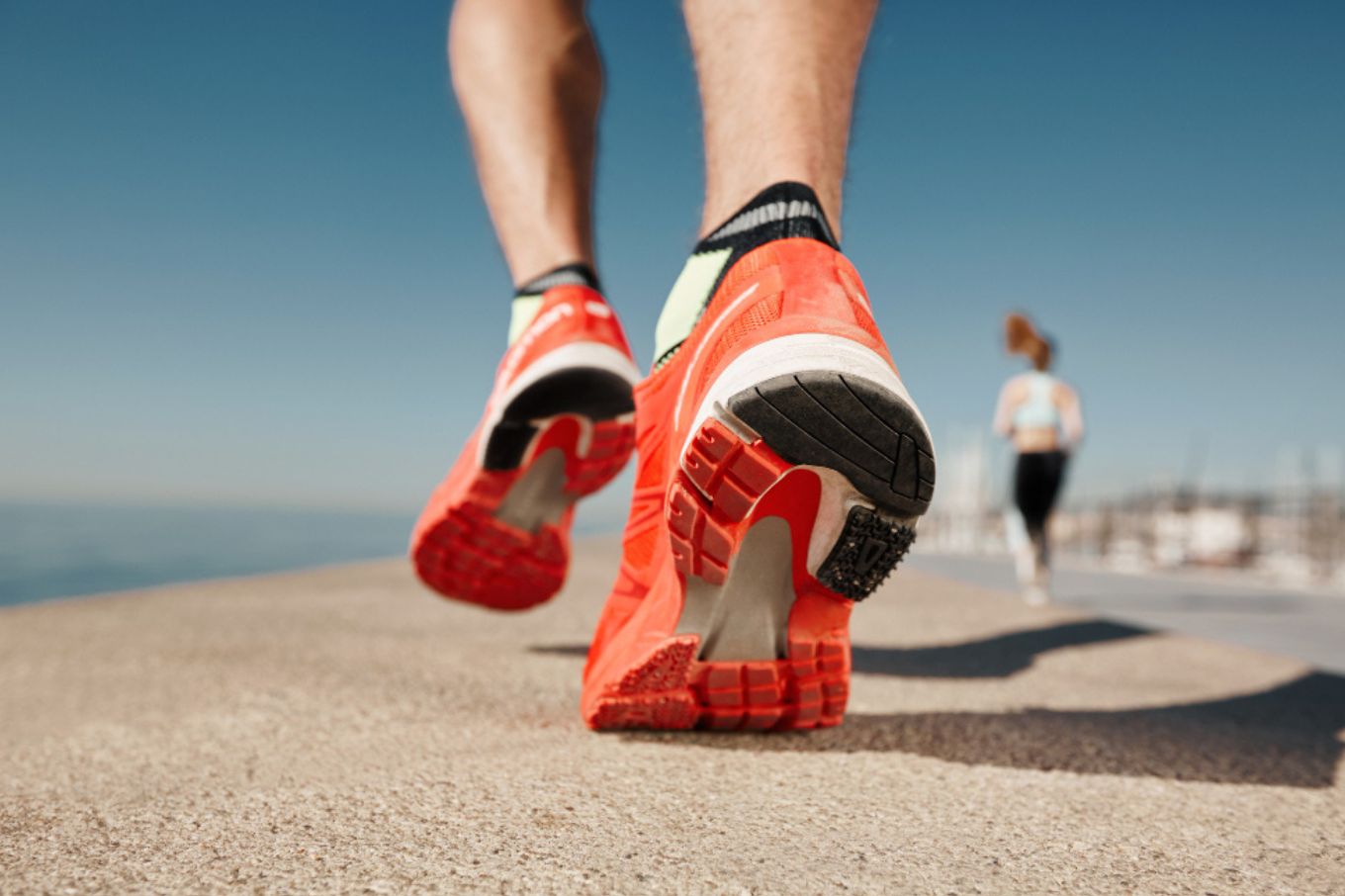The rise, fall and rebuild of Australian trail runner Reesha Lewis
Article By: Samantha Turnbull
Photography By: Sok Images and Reesha Lewis
Queenslander Reesha Lewis went through a dramatic transformation both physically and mentally, and before she knew it, she was taking control of platforms from race to race to race. But some much needed time out in 2023 left many in the trail community wondering where the rising star had disappeared to, so Samantha Turnbull hears from the trail runner to get an update on what she’s been doing and her plans for a comeback.
Reesha Lewis was halfway up a mountain when she realised she needed to change her life.
Out of breath and struggling to move her 142kg body, she was confronted by the difficulty and ashamed of her lack of fitness.
“I realised how unfit and unhealthy I was and that I wasn’t a role model for my children,” she says.
“It was exhausting, it was extremely hard, but I also loved it.”
It was Australia Day, eight years ago, when Reesha had that epiphany on Mount Ngungun near her home in the Glasshouse Mountains on Queensland’s Sunshine Coast. At a barbeque after the climb, the mum-of-two resolved to do it again…and again, until her fitness reached a level she could be proud of.
Reesha and her own mum awoke at 3.30am to climb Ngungun three days per week. Reesha’s strength improved quickly and the weight began to melt away. When she reached 100kg, she set herself the goal of climbing the bigger Mount Beerwah. That climb took her 3.5 hours. Now, at age 37 and 60-something-kgs, she can run up and down Mt Beerwah in about 26 minutes and she holds the Fastest Known Time for the ascent and descent of every peak in the Glasshouse Mountains.
“I’ve been told my running-down-mountains looks like ‘controlled falling’,” she laughs.

But it wasn’t until Reesha joined Strava that she began to understand she had a talent for mountain running.
“I thought ‘maybe I’m not too bad at this’ and then people would say ‘Reesha, you’re actually quite fast,’” she says.
“Then I found out people raced mountains, so I did the Pomona King of the Mountain race, then I went to New Zealand on the Australian team but I broke my hand the day before and they wouldn’t let me race even though I begged them.”
Reesha also took up boxing and had been focusing on that sport until COVID-19 shut down competitions and gyms. Bored with hours on the rowing machine in her garage, she changed her focus to running with her mountain-climbing friend Ian Stuck. Ian became Reesha’s training partner and inspired her to enter her first ultra, the Blackall 50km.
“I trained on the course and it’s my home turf, so I knew where I was strong and where I wasn’t, but I never expected to win and set a course record on my first race ever,” she said.
“That blew my mind, but then I thought…‘maybe the really fast females didn’t turn up.’”

Weeks later, Reesha won the 51.5km ‘Glass Half Full’ event at the Guzzler in Brisbane. Since then, she has won almost every event she has entered including the Brisbane Trail Ultra (60km), the Blackall 100km, Yandina Five ‘0’ (50km), Coastal High (50km) and Guzzler 100km, including several course records and all within the space of just three years.
She says her first Blackall 100km (she won and set a new course record) has been the highlight of her, so far, short running career.
“I didn’t have a care in the world, I didn’t put any pressure on myself,” she says.
“The way I felt that day, everyone talks about that wall you hit, so I was waiting for that wall to hit, and it didn’t hit. My watch completely died at 60km, so I wasn’t able to look at my heart, or splits or anything, but it didn’t matter.
“I look back through my photos and I’m smiling and waving. That’s how I felt the whole time.”

Reesha became addicted to the feeling of challenging herself and wanting to constantly improve. She was running at least 100km every week in training, and following a low-carb vegan diet.
“I’d never really been taught what to do, I was just winging it,” she says.
“I wanted to push myself with more distance, more elevation, constantly pushing myself to the next level…it was really full-on.”
In 2022, Reesha entered the 128km Ellery Monster in the West Mac’s Monster trail running festival along the Larapinta Trail near Alice Springs. She won the race, and set another course record, but it was there she also began to unravel.
“It was very rocky, like nothing I’ve ever done before and I fell,” she says.
“I hit my hip and my knee. It was severe and I kept running with 40km to go. In the back of my mind I knew I was the leading female, so I told myself to just keep moving.
“I couldn’t bring myself to stop and pull out because I’d be failing my mission. It was agony every step. One of the race directors had to drive me back to my accommodation because I couldn’t lift my left leg into the car.
“But it was a life-changing experience because I’d never had a race haunt me like that. I was so broken. There was no recovery.”
Despite the toll the Larapinta took on Reesha’s body, two months later she lined up for (and won) the Guzzler 100km, followed by the Coastal High 50km and her second Blackall 100km.
All eyes were on Reesha’s second Blackall 100km where she was competing against the younger and better known Lucy Bartholomew. Reesha won again, but it was nothing like her first Blackall 100km experience.
“I was hurt – I fell and tore my hamstring at 30km,” she says.
“I was planning on doing UTA 100 after Blackall 100, two weeks later, and that was my full focus. I was like a lioness chasing a gazelle…I was going to destroy this and destroy myself.
“Then I found out I had a grade 1 and grade 2 tear to the hamstring and there was no way I could do UTA.”

Reesha was forced into rest. She used the downtime to undergo surgery she’d been wanting since her weight loss (abdominoplasty and breast augmentation), but still she kept climbing mountains.
“I did go out hiking with my torn hamstring and my drains and stuff after my surgery,” she says.
“I was hiking about 100km a week, there was still no holding me down. You get this fire in your belly and it’s like: ‘how much can I do, how far can I go?’. Then my body said ‘hey we’re tapping out.’ Now I can see I was a ticking time bomb.”
Reesha only entered one event in 2023 as she came to terms with a diagnosis of RED-S (Relative Energy Deficiency in Sport) and associated health complications.
“I’ve torn my hamstring twice since Blackall plus had a fractured foot and severe tendonitis and can’t seem to heal from my injuries,” she says.
“I’ve had hormonal issues, lost my period and I thought I was in early menopause.
“I spent way too long in calorie deficit and it’s affected my bones, ligaments, tendons, everything, and it’s been a mess trying to sort things back out.”
After years of ‘winging it’, Reesha sought help from a running coach, who got her to realise the importance of strength training and stretching.
“I’m like that naughty little child who doesn’t listen,” Reesha laughs.
“Kara will ring me if she sees me doing something that’s not in my program… she knows her stuff and I probably wouldn’t be in the position that I am now if I didn’t start with her five months ago.”
Reesha has also changed her approach to nutrition, focusing on variety and enough carbohydrates.
“I try to look at my calories now, have plenty of healthy fats and protein,” she says.
“I did that low-carb vegan diet for a long time and I thought it worked for me, but I’m trying to not be as afraid of carbs. Your body needs fuel. So, I’m trying to eat more and with more balance.”
A look at Reesha’s Strava will reveal she’s still regularly running mountains, but her mileage has decreased and she has introduced cross-training like cycling and the gym.
“I’m a gym person now,” she says.
“I don’t enjoy it, but I know you need to strengthen so I’m doing it.”

Reesha says the recovery has also been a mental battle.
“It’s been hard to come to terms with because being overweight and my old lifestyle put me in that position, but now exercising too much and not eating enough has put me in this position,” she says.
“For a little while I blamed my surgery and the time off. I blamed myself. Then I realised dwelling on the past wasn’t getting me anywhere.”
Reesha hopes other runners will learn from her mistakes and realise when to pull back.
“I wouldn’t go out to dinner because I’d be worried about running early the next day, and that’s not a healthy way to live all the time,” she says.
“If I could replay that year after Larapinta I would definitely have had a couple of weeks where I did not run – you need time off. I would’ve sorted out my hip – you need to pay attention to injuries.
“I’d do strength training and I’d also not do so many races, with so many training kilometres in between. It was all too much.”
Now, Reesha is feeling emotionally and physically stronger each day, and with the help of her coach is trying to take a sensible and focused approach to recovery. She hopes to be racing again by the end of 2024.
“Things are getting better,” she says.
“I’m hungry for more challenges. I’m not done yet.”











